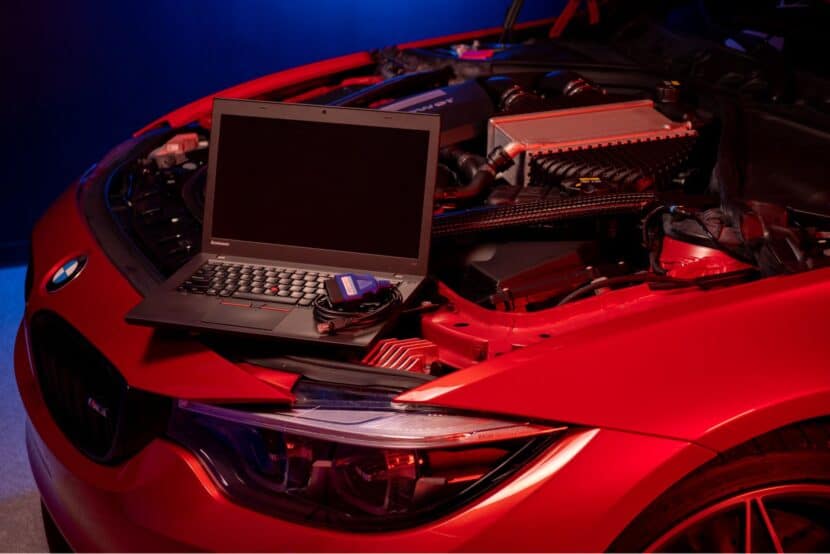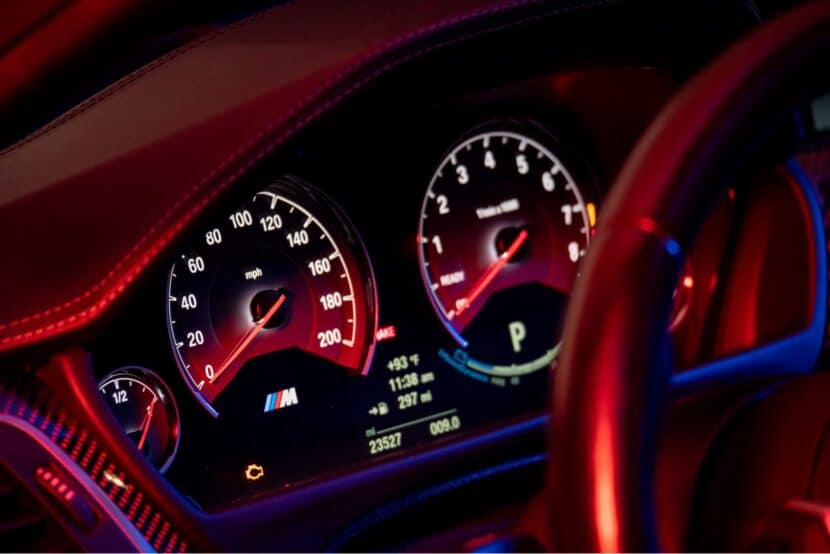To tune or not to tune, that is the question… Or at least, it could be if Shakespeare were a BMW-owning gearhead. However, since he was an Elizabethan Era playwright, we should focus on the question itself, as it might be what you’re considering in the present day.
Okay, let’s set things straight right away: there are some significant advantages to be gained with BMW engine tuning. If you decide to go for it, your car will become more lively, less fuel-thirsty, and it will last you longer. But that doesn’t mean there aren’t important considerations to be made before modifying your car in any way. So, join us for this ride and find out whether or not the engine tuning is worth it for you.
All You Need to Know About BMW Engine Tuning
Before we delve into the benefits of tuning, let’s recap what the whole process is about. This process involves reprogramming the Engine Control Unit (ECU, hence the name ECU tuning used interchangeably with engine tuning) to maximize your car’s performance.
Perhaps we should also explain why there is room for improvement in the first place. The factory-installed ECU map in your BMW is designed to adhere to emission regulations and accommodate different engine units, regardless of the tolerances between their components. It balances performance, compliance, and versatility, but often leaves untapped potential hidden within your engine. This is where BMW ECU tuning comes into play.
By installing a BMW remap, you can improve the overall performance of your engine while staying within its safe operational limits. Skilled BMW tuners can adjust various parameters, including boost pressure, fueling, ignition timing, fan speed for improved cooling, and even the operation of BMW’s variable valve lift (Valvetronic) and timing system (VANOS). Most importantly, it can enhance throttle response, delivering a more exciting driving experience.
Tuning Your BMW – What You’ll Get
Obviously, the primary advantage of ECU tuning is enhanced performance, including increased power, torque, and improved vehicle responsiveness. That being said, there could be also other equally important improvements – fuel efficiency and engine durability. But what exactly does this mean for you?
Performance
Following an ECU tuning session, you can anticipate a noticeable surge in horsepower, torque, and a much smoother throttle response. Sometimes, it is possible to achieve up to approximately 25% more power and torque over the stock map. In reality, the torque gains could be even more noticeable, mostly due to increased turbocharger boost pressure.
A perfect everyday tune will also significantly enhance torque curves in the lower RPM range, ensuring your engine responds swiftly to your inputs. So that when you’re confronted with some slowpoke on the backroads or merging onto the highway, you’ll have all the power you need.
Longevity
Tunes that are meant to be practical could also reduce your BMW engine’s operating temperature, potentially adding some life to your engine. Changes in target coolant temperature and fuel dosage are particularly responsible for this improvement. The ECU could keep down the operating temps, while a more optimized air-fuel mixture will result in cooler exhaust gases. All in all, cooler exhaust temperatures will result in a cooler-running engine. And that will translate into less component wear.
Economy
Staying in the realm of fuel dosage improvements, there is also one more practical advantage of engine tuning. The careful tweaking within the ECU programming could allow for a drop in fuel consumption. While that might not sound like a lot, you’ll feel the difference over time, especially if your annual mileage is high.
And even more so if you feed your ride with only the premium stuff – that’s where the real savings are going to come from. Highest-quality gasoline will let you keep the fueling system of your BMW in good condition for longer, which is especially important for direct-injection engines.
No Rose Without a Thorn – Downsides of BMW Engine Tuning
To all pros there are cons, and tunes are no exception to this rule. The main thing you should keep in mind when considering an ECU tune is the fact that you’ll most likely lose your drivetrain warranty if your car is still covered by it.
This means that if your engine, transmission, or other drivetrain components break, and if your dealership detects any software modifications you’ve installed, they will refuse to cover the cost of repair. Even if the tune won’t be directly what caused that issue. It’s worth noting though that engine tuning is not going to void the warranty for other things, like the electronics or interior elements.
Another consideration when it comes to BMW ECU tuning is reliability. As mentioned earlier, a proper remap will keep the engine operation well within the manufacturer’s durability margins. That being said, if you’ve neglected maintenance in the past or if you do not perform regular check-ups of your car after the tune is installed, you might be in for a nasty surprise.
…Then again, you wouldn’t be considering BMW performance tuning if your car was in bad shape, wouldn’t you?
Awaken Performance BMW Engine Tuning
Usually, “meddling” with the ECU requires going to a specialized tuning workshop. There, the tuner will connect their laptop to your car via an OBD-II port and adjust a bunch of parameters in the tuning software. You’ll spend a few hours there, since they will probably want to take multiple logs and test your car on a dyno. Pretty time consuming.
Alternatively, you can choose a remote BMW engine tuning service, like Awaken Performance by BimmerTech. They also prioritize safety by making all the necessary data logs before and after the tune is installed, but you don’t even need to leave your driveway. You just book your session with them, connect your laptop via the ENET cable, and let them take care of everything. All taking place within just 1 hour.
With the extra power and torque, lower operating temperatures, as well as the fuel consumption improvements, it’s more of an investment rather than a whim purchase. You’ll get your money’s worth back in no time. Simply put – a fair price for a reliable tune that you can have effortlessly installed in your car.
Which BMW & MINI Engines are Best and Worst for Tuning?
Knowing the pros and cons of engine tuning, it’s also worth remembering that some cars are better suited for it than others. For example: models equipped with naturally aspirated engines, like BMW N52 and BMW N53, won’t gain much after a remap.
This is in contrast to turbo- or supercharged units. Since there are fewer parameters that can be adjusted within the ECU of an NA engine, it’s usually impossible for it to achieve noticeable gains without any major hardware modifications. In forced induction ones simply increasing the boost pressure will yield a respectable power and torque gain.
Remember though: not all turbo engines are created equal. That is to say, some of them aren’t really that tuneable, either because they already produce a lot of juice in their stock form or due to some design shortcomings. One such example is the BMW N20 engine – it’s prone to high operating temperatures, so there is not much wiggle room for safe power and torque increases with an ECU remap. When working on this unit, it’s best to upgrade the intercooler along the tune.
Engine tuning is also not only meant for performance-oriented vehicles. Granted, cars that are very powerful from the factory will usually have a much greater tuning potential than regular ones, but there is still much to be gained for non-M BMWs (and non-S MINIs). Just look at the members of the newest modular engine family from Bavaria – BMW B48 and BMW B58 are some of the most durable and easy-to-tune designs.
All in all, before you decide to reach out to a tuner of your choice, be sure to do some research and check if your engine is good for tuning.
So – Is Engine Tuning Worth It?
While there are significant advantages to BMW ECU tuning, ultimately, it all boils down to your personal needs. If your vehicle is no longer covered by the warranty and if you take good care of it, you won’t be disappointed. Driving a newly tuned car is basically like driving a brand-new one, since you’re discovering how it behaves. And it will behave differently, trust us.
On the other hand, if you’re not sure of the condition your car is in, before you consider engine tuning, take it to a good workshop for a check-up and see if everything’s well. Tuning is great, but you wouldn’t want it to reveal any hidden issues!
Disclaimer: This post is sponsored, and we have not conducted any testing on the specific ECU tuning product mentioned. By choosing to engage with or use this product, you acknowledge and agree that you do so at your own risk. We, the publishers of this post, disclaim any responsibility for potential damages to your vehicle or any other associated consequences arising from the use of the ECU tuning product.
It is strongly advised that, before proceeding with any modifications, you seek advice, instructions, and information directly from the company providing the ECU tuning solution. We do not endorse or guarantee the efficacy, safety, or suitability of the product mentioned, and any decision to use it is solely at your own discretion and risk.
Always adhere to manufacturer guidelines, applicable laws, and industry best practices when modifying or tuning your vehicle. In the event of uncertainties or concerns, consult with qualified professionals or the product manufacturer for personalized assistance. The information in this post is purely informational and not intended as tuning advice.
By reading and acting upon the information provided in this post, you explicitly release us from any liability or responsibility related to the usage and consequences of the mentioned ECU tuning product.


